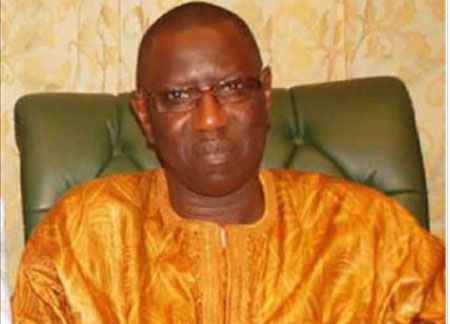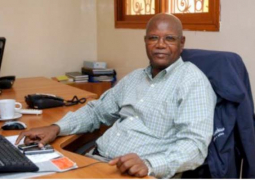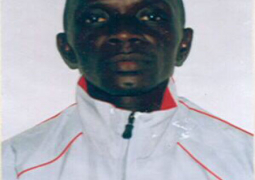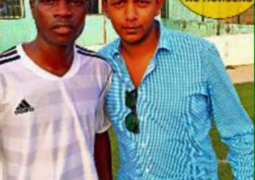
Former mayor of the Banjul City Council, Samba Faal, who is also the ruling APRC candidate for April 4 Local Government elections, has spoken out, declaring that the three independent candidates challenging him for the city’s top job are not in touch with the realities on the ground.
Faal, who holds a BA in journalism and is seeking a third mandate as mayor of Banjul, said in an interview with The Point Wednesday that if his opponents promise the people of Banjul that they can rehabilitate the roads in the city from council resources, then they will be doing a great disservice to the people of Banjul.
According to him, road construction is capital intensive and beyond the meager resources of the council, as it involves partnership with multiple stakeholders with the central government taking the lead role.
He invited his opponents to a television debate to show to the people of Banjul what they have for them, not based on speculations or promises, but tangible outcomes based on realities on the ground.
For the benefit of our readers, below is an excerpt of our interview with Samba Faal:
Road construction is capital intensive, and beyond the meager resources of the council. Therefore, roads are heavily subsidized by the central government with very minimal input from the council, where central government contributes 90% with other stakeholders, and the council contributes only 10 % and, in some cases, nothing at all. We have taken initiatives to rehabilitate some roads in Banjul through Gamworks, but again we contributed only 10% of the cost.
Independent candidates are not in touch with the realities on the ground, and if they promised the electorate that they can rehabilitee the roads of Banjul from council resources, they are doing a great disservice to the people of Banjul. As I mentioned earlier, road reconstruction is a partnership with multiple stakeholders, with the central government taking the lead.
The central government has already taken the lead, as is quite evident, by helping in providing training. We continue to provide scholarships to needy students in Banjul as part of our social responsibilities. We have been able to rehabilitate the Manneh Sillah Basketball Court in partnership with Father Gough Foundation, and it is now serving a very useful purpose in the promotion of and development of both basketball and volley ball.
The Banjul mini-stadium has been developed with an artificial turf to meet international standards, and plans are ahead to build more pavilions and provide lighting. Every year, as part of its sports sponsorship package, the council provides jerseys to all participating teams and pays for their participation fees.
We shall continue to explore other avenues of promoting sports in Banjul in collaboration with the Banjul Sports Committee. The monies we collect from the people in rates and taxes, within a narrow revenue base, are what we plough back to the communities in the form of basic social services.
Contrary to insincere political pundits, Banjul is one of the cleanest cities in the sub-region. You will not find any illegal dump suite in Banjul.
This has been attested to by international travelers, even broadcast over BBC for the whole world to hear. We make environmental sanitation a priority, as Banjul is not like any other municipality; it is also the capital of The Gambia, the seat of government, the commercial capital and the face of The Gambia.
Banjul has a population of little over 35, 000 but everyday almost half the population of The Gambia converge in Banjul and transit through Banjul from the North Bank; and from the Denton Bridge most people also travel to Banjul to either work in offices or carry out business. Every one of them will either eat or drink something or use the facilities we provide; so in essence most of our services are subsidized, especially waste collection.
We have been able to complement our social service delivery initiatives by engaging our external partners, particularly the city of Ostende and Taipei, who has provided us with vehicles and cleansing materials to enhance our waste collection efforts.
Finally, I would like to call on all rate payers to pay their rates as that is what we use to render services. People of Banjul should not allow personal interest to override the collective interest, and we have to be mindful of the people to whom we entrust the running of the city.
City management is not based on speculation or hearsay, but on realities on the ground; it is not based on endless promises, but on realities on the ground. I appeal to all and sundry to be calm and composed as we approach the local government elections.
To other aspiring mayoral candidates in Banjul, I wish to invite them to a national television debate to show to the people of Banjul what we have for them, not based on speculation or promises, but tangible outcomes based on realities on the ground.




